The
Indonesian province of North Sulawesi
is rapidly emerging as a top destination for travelers seeking a mix of breathtaking natural beauty, rich cultural experiences, and world-class diving. With its lush
landscapes, warm hospitality, and vibrant coral reefs, this region—especially
the areas surrounding the capital city of Manado—is
a haven for divers, snorkelers, and water
sports enthusiasts.
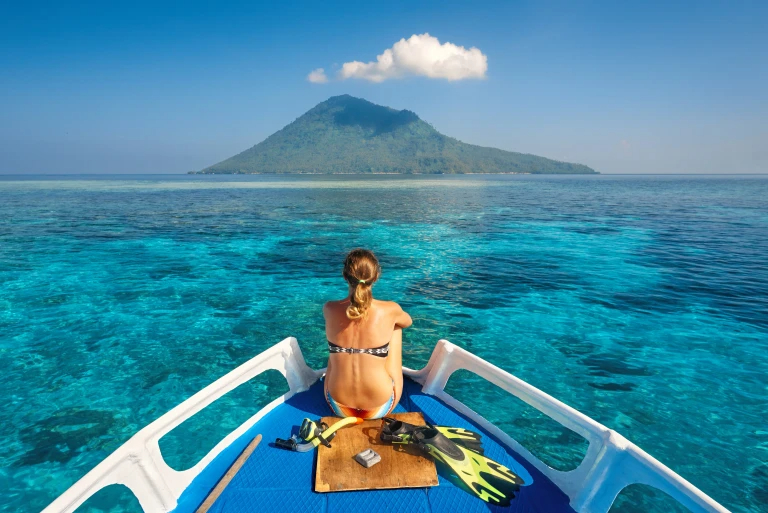
How to Get There
Reaching North Sulawesi is straightforward, with most travelers arriving via Sam Ratulangi International Airport in Manado, the provincial capital. The airport is well-connected with regular domestic flights from places such as Jakarta and Bali, as well as international routes from nearby hubs like Singapore.
Upon arrival, local tour operators and dive resorts typically offer easy transfers to accommodations and dive sites, making it hassle-free to begin your North Sulawesi adventure.
Exploring North Sulawesi Underwater
North Sulawesi is internationally recognized for its extraordinary underwater biodiversity, offering year-round diving in warm tropical waters. Whether you're drawn to vibrant coral walls or fascinated by rare macro life, this region provides an unmatched underwater experience for divers, snorkelers, and water sports lovers alike.
Year-Round Tropical Diving
North Sulawesi enjoys a stable tropical climate with warm waters ranging from 28°C to 30°C, making it ideal
for diving in a 3mm wetsuit. The dry season lasts from April to November,
while the rainy season begins in early
December. Regardless of the time of year, the region offers excellent visibility and diving conditions,
making it a reliable year-round
destination for underwater exploration.
Bunaken Marine Park: A Biodiversity Powerhouse
One of North Sulawesi’s most celebrated diving
spots is Bunaken Marine Park, a
renowned marine reserve known for its astonishing
biodiversity. Home to over 2,000
species of fish and 380 species
of coral, Bunaken offers an unforgettable diving experience.
Here, divers regularly encounter:
- Humphead wrasse, barracuda, and giant grouper
- Reef sharks (blacktip and whitetip), spotted eagle rays, and stingrays
- Emperor angelfish, Almaco jack, and spotted seahorses
- Blue-striped snapper, bream, nautilus, and helmeted hornsharks
- Giant clams and colorful ascidians
Schools of redtooth
triggers, butterflyfish, yellow snappers, and dragonets patrol the reef flats, while green sea turtles and hawksbills are
frequently seen feeding on sponges.
Top dive sites like Lekuan and Timur almost guarantee turtle sightings,
while Raymond Point and Mandolin, located between Bunaken and
Manado Tua, offer thrilling drift dives
for more adventurous divers. Most dive sites are accessible at depths of 25 meters or less, but advanced divers
can explore a World War II cargo
shipwreck at 40 meters, where massive propellers remain remarkably
intact.
Lembeh Strait & Nudi Falls: Macro Magic Meets Coral Beauty
To the southeast lies the Lembeh Strait, a narrow channel between
Lembeh Island and the mainland that has achieved legendary status among macro photographers and critter hunters. Unlike the coral-rich
landscapes of Bunaken, Lembeh is famed for muck diving—a style of diving that focuses on finding
small, rare, and often bizarre marine life on sandy or silty bottoms.
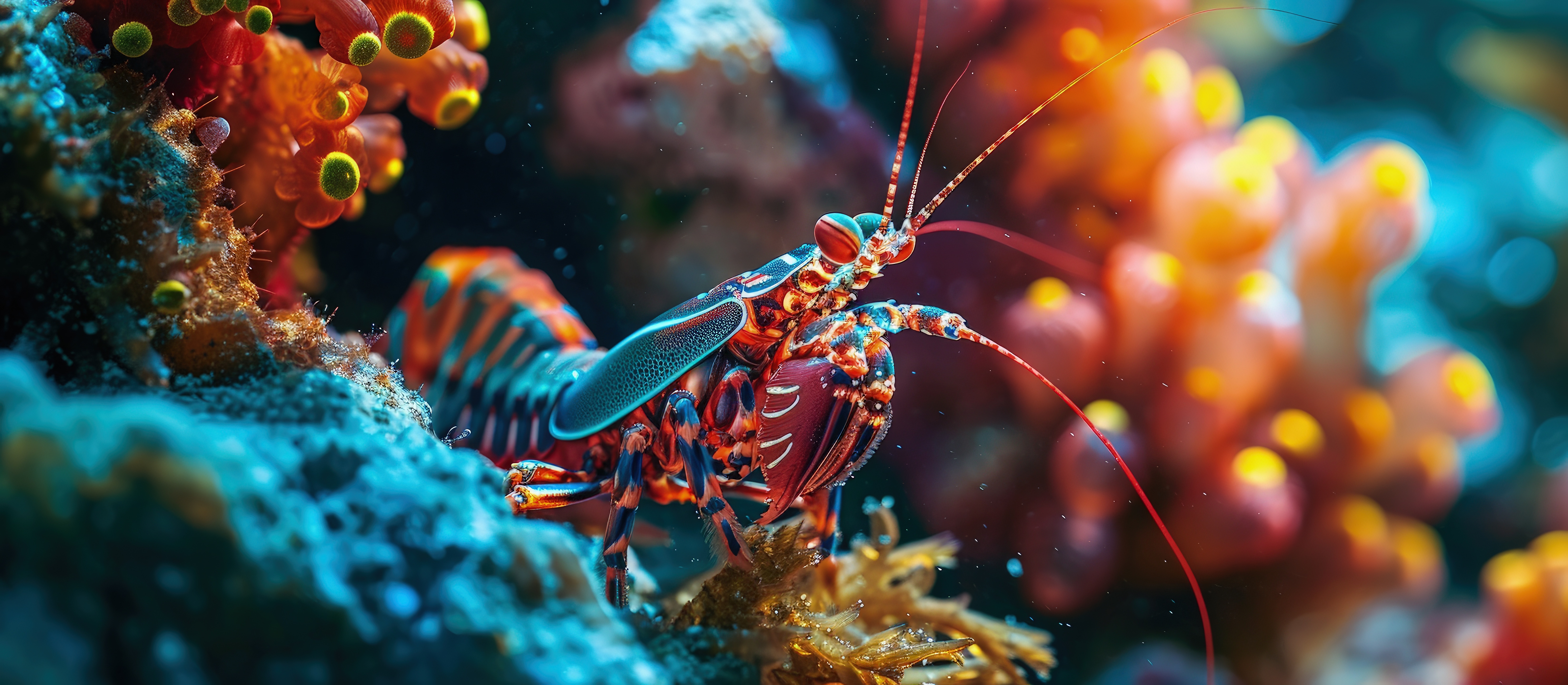
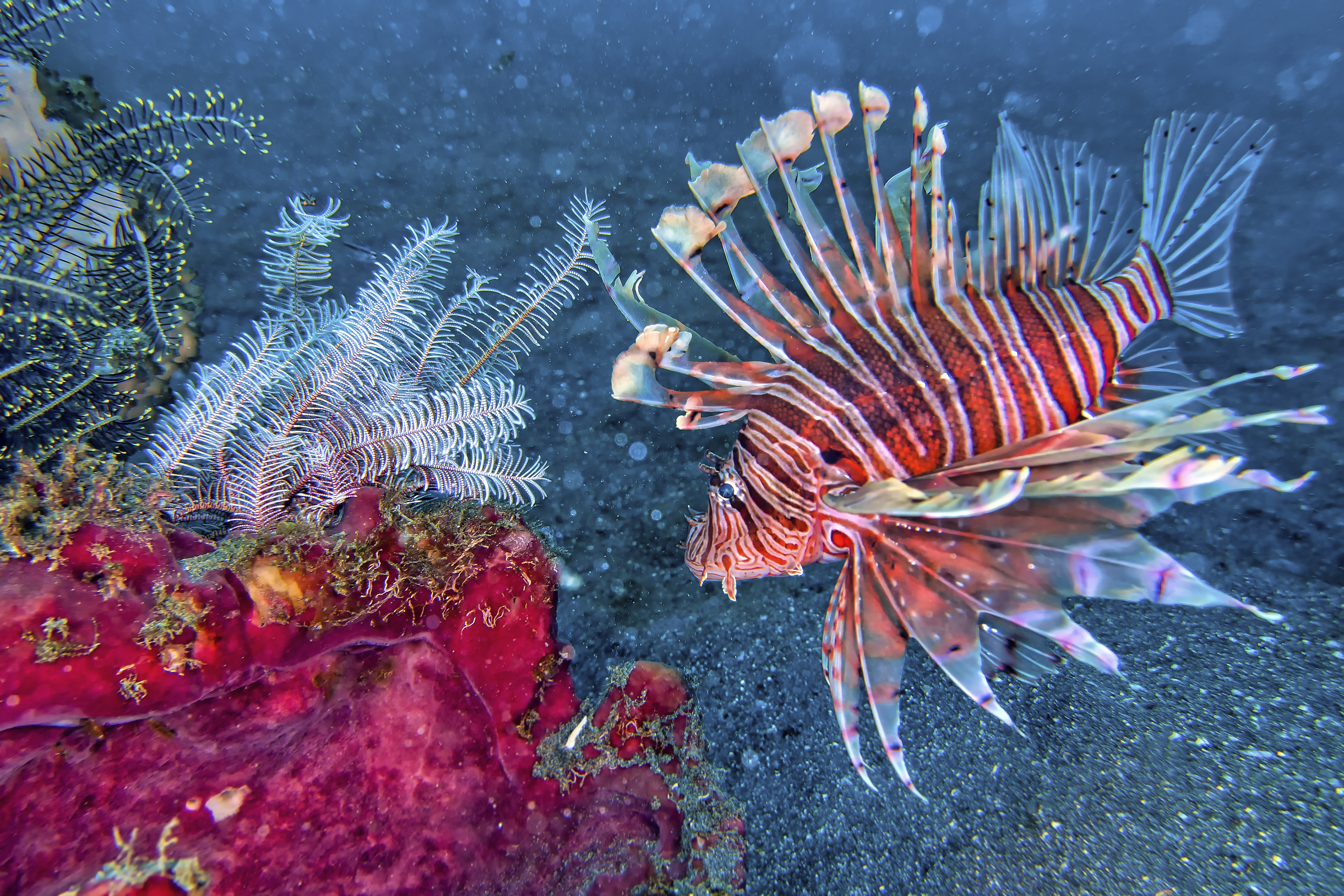
Photo: Dreamstime, Adobe
Here,
divers can discover:
- Colorful nudibranchs and camouflaged crustaceans
- Painted and hairy frogfish
- Blue-ringed and mimic octopuses
- Flamboyant cuttlefish and other rare cephalopods
Every dive in Lembeh Strait brings a new
surprise, making it one of the most exciting
and unpredictable dive sites in the world.
Just off the Lembeh coast lies one of North
Sulawesi’s most celebrated sites: Nudi
Falls. This highly recommended dive site is renowned for its unique and vibrant marine life,
including the elusive pygmy seahorse
(Bargibanti), which blends seamlessly into sea fan branches along the
coral wall. While Lembeh is mostly associated with muck diving, its northern end reveals colorful coral gardens
at depths between 18 and 24 meters,
offering a beautiful contrast and broadening the region's underwater appeal.
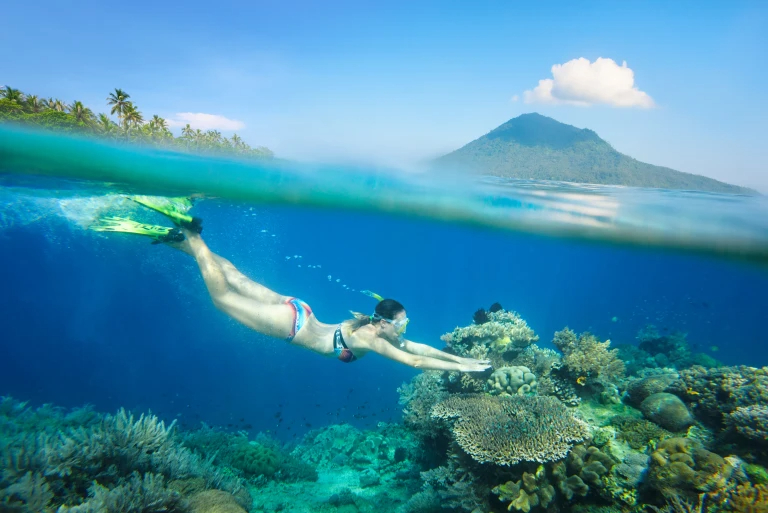
A Commitment to Sustainability
North Sulawesi is not only rich in marine life
but also in conservation leadership.
The region has embraced sustainable
tourism practices through collaborative efforts between local communities, dive operators, and marine
parks.
The North
Sulawesi Watersports Association (NSWA)—an alliance of 18 dive operators and resorts—has played
a pivotal role in marine conservation. Their initiatives include:
- The eradication of dynamite fishing
- The installation of eco-friendly mooring lines to protect coral reefs
- Promoting responsible diving practices among all affiliated guides and resorts
These ongoing efforts ensure that North
Sulawesi’s marine treasures are preserved for generations to come.
Things to Do on Land
While North Sulawesi is a diver’s paradise, it also offers a wide range of activities for those who want to explore life above the surface. From lush rainforests to historic landmarks and thrilling outdoor adventures, the region has something for everyone.
Explore Unique Wildlife and Birdwatching
Thanks to its unique biogeographical position, North Sulawesi is home to a variety of endemic animal species. One of the best places to experience this rich biodiversity is the Tangkoko Jungle Reserve, which spans 8,700 hectares of protected forest.
Nature lovers and birdwatchers can spot:
- The Sulawesi crested macaque
- Tree-dwelling marsupials
- Exotic birds such as the masked owl, ground-dwelling maleo, and the mysterious satanic nightjar
This jungle sanctuary offers a truly immersive wildlife experience in one of Indonesia’s most ecologically rich environments.
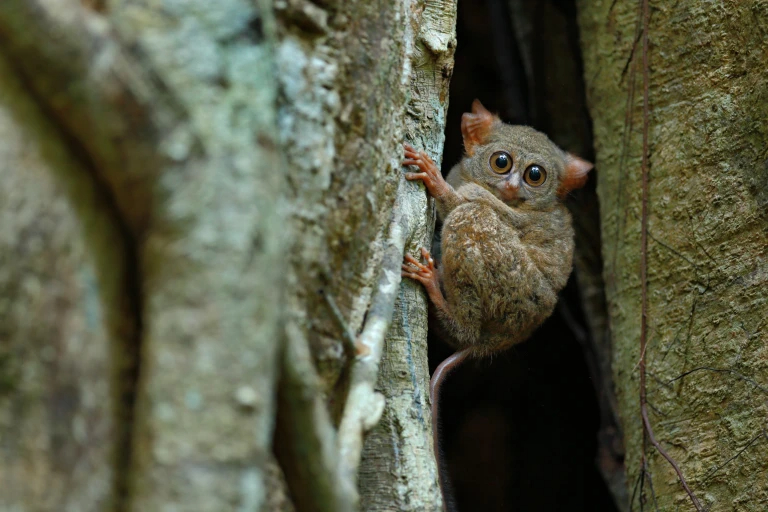
Take in Highland Views and Volcanic Vistas
The Minahasa Highlands offer spectacular landscapes and cooler air—an ideal escape from the tropical lowlands. Adventurers can hike Mount Lokon, an active volcano, to take in panoramic views of rolling green hills and rice fields.
On a clear day, the Tetetana hills offer a rare sight: the ability to see both the northern and southern coasts of North Sulawesi at once.
Discover the Ancient Waruga Tombs
For history and culture enthusiasts, a visit to the Waruga sarcophagi is a must. These stone coffins, once used by the Minahasa people, are elaborately carved and stand as silent testaments to a unique burial tradition.
As Christianity spread, this practice gradually faded, but many waruga sites remain well-preserved and are now listed as UNESCO World Heritage Sites. Local guides offer fascinating insights into the rituals, symbols, and beliefs surrounding these ancient tombs.
Enjoy Outdoor Adventures and Cultural Landmarks
Beyond hiking and wildlife spotting, North Sulawesi is packed with land-based adventures and cultural gems. For
those who prefer to stay dry, there’s plenty to explore:
- Go white-water rafting through scenic river valleys
- Cool off under majestic waterfalls nestled in the hills
- Explore local temples rich in architectural detail
- Bargain at lively markets for local crafts, spices, and produce
These
activities offer a wonderful way to experience
the landscape and traditions of the region, adding depth and variety
to your North Sulawesi adventure.
People and Cuisine of North Sulawesi
Beyond its natural wonders and underwater adventures, North Sulawesi delights visitors with its rich cultural heritage and warm, welcoming people. Tourism in the region is still relatively underdeveloped, so travelers are often treated not as tourists, but as honored guests and friends. Encounters with locals feel authentic and personal, adding a deeply human touch to any journey through the region.
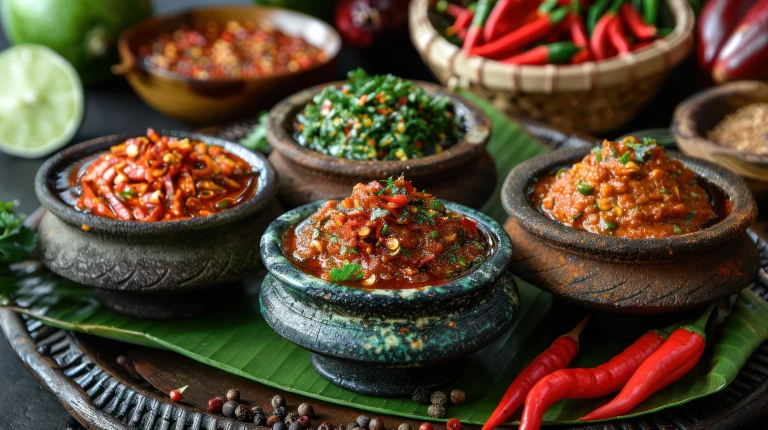
Warm Hospitality and Cultural Pride
The people of North Sulawesi are known for their genuine hospitality and strong sense of community. Whether you're strolling through a village or attending a local event, you're likely to be greeted with smiles and curiosity. Visitors are often invited to join in celebrations or enjoy a meal, creating meaningful exchanges that are remembered long after the trip ends.
Flavors of North Sulawesi
North Sulawesi’s cuisine is as vibrant and distinctive as its landscapes. One of the most iconic dishes is tinutuan, a hearty and colorful porridge made from rice, pumpkin, and sweet potatoes. It’s seasoned with local herbs and often topped with greens or crispy shallots, offering a rich and slightly tangy flavor that reflects the region’s culinary identity.
While many Manadonese dishes resemble other staples of Indonesian cuisine—such as nasi goreng (fried rice) and gado-gado (blanched vegetables with peanut sauce)—one standout is dabu-dabu, a spicy condiment unique to the region. Often likened to a fresh salsa, dabu-dabu is made from diced tomatoes, chili peppers, green onions, salt, and lime juice. It’s beloved by locals for the bold kick it adds to almost any dish and is a must-try for spice lovers.
Whether you're sampling traditional flavors in a roadside warung, joining a family for a home-cooked meal, or browsing ingredients at a lively market, the people and cuisine of North Sulawesi provide an experience that’s warm, flavorful, and full of character.
A Destination Like No Other
North Sulawesi is a place where natural beauty, vibrant culture, and unforgettable adventures come together in perfect harmony. Whether you're exploring the teeming coral reefs of Bunaken, uncovering rare marine creatures in Lembeh Strait, hiking volcanoes in the Minahasa Highlands, or sharing stories and meals with the warm-hearted locals, every moment here leaves a lasting impression.
Still relatively untouched by mass tourism, North Sulawesi offers a genuine and enriching travel experience—one where you're not just a visitor, but a welcomed guest. With its year-round tropical climate, rich biodiversity, diverse landscapes, and delicious cuisine, this Indonesian gem is more than worth the journey.
For divers, nature lovers, cultural explorers, and foodies alike, North Sulawesi is not just a destination—it’s an invitation to discover something truly special.
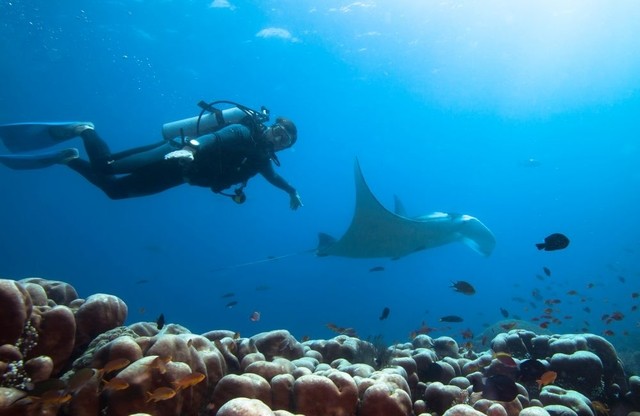

You can add one right now!